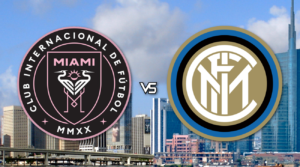Background
The US’ premier football (or soccer, in truly American fashion) league – Major League Soccer (“MLS”) – has slowly but steadily built its name as a respectable league capable of producing promising, young talent and persuading big football stars to come ply their trade in North America. Players such as Wayne Rooney, Kaka, David Villa and Zlatan Ibrahimovic are amongst those who’ve graced the MLS in the recent past, albeit in the twilight of their illustrious careers. It wouldn’t be over-exaggeration to suggest that none of this would’ve been possible without David Beckham’s foray into the MLS in 2007, when he joined L.A. Galaxy from Real Madrid. Given the widespread acclaim and fame Beckham had garnered over the course of his career till then (both on and off the pitch), his move generated global headlines and fanfare, thereby bringing the MLS into the limelight and spurring the league on commercially. However, Beckham’s involvement with the MLS did not end there, as post-retirement, he has managed to bring one of the MLS’ newest expansion clubs to Miami: Inter Miami CF.
With Beckham at the helm as one of the club’s top executives and investors, Inter Miami FC promises to further augment the MLS’ marketability and stimulate commercial growth through increased viewership and match revenue.[i] However, it’s not all smooth-sailing for the fledgling club at the moment. Other than the club recently applying for a COVID-19 relief loan under Congress’ Payment Protection Program,[ii] the Inter Miami brand has been at the forefront of a trademark dispute involving one of football’s biggest clubs, Inter Milan. Intriguingly, the relationship between the MLS and its constituent clubs, as initially envisioned, was that the MLS would operate as a ‘single-entity structure’ (meaning that the league owns all teams). Though de facto, this is now far from the case, the league still operates in various facets as if guided by that structure and thus it manages the intellectual property of its teams.[iii] Long story short, the legal onus for defending the ‘Inter Miami’ brand as a viable trademark lies on the MLS, and not Inter Miami CF.
Trademark Protection for ‘Inter’?
Coming to the case at hand, Inter Milan filed for registration of the word ‘Inter’ with the U.S. Patent and Trademark Office (“USPTO”) in 2014. It sought to register ‘Inter’ for a variety of goods (shirts, jackets, dog collars, etc.) as well as in the entertainment services sector (including production of pro football games). The MLS, in 2019, filed a notice of opposition to the U.S. Trademark Trial and Appeal Board (“TTAB”) in an attempt to block registration of the word ‘Inter’, given the implications it would have on the Inter Miami CF brand and the corresponding commercial impact on the league as a whole (details of the application and records of the proceedings so far can be found here).
The MLS’ notice of opposition was premised on primarily two grounds, that (a) ‘Inter’ as a mark is merely descriptive and (b) granting protection to such a mark would likely cause confusion. Inter Milan, in its response, sought a partial motion to dismiss the latter claim. Essentially, the argument on this point boiled down to the fact that the word ‘Inter’ is merely an abbreviation of ‘Internazionale’ (or International), and as such, it cannot be associated or used as a source-identifier only by one club. To this end, the MLS pointed to the existence of 4 other football clubs in the U.S. alone which used ‘Inter’ in their team name before the trademark application in 2014 – Inter Soccer Association, Chicago Inter Soccer Club, Inter Atlanta F.C. and InterCounty Youth Soccer League[iv] (there are also numerous ‘Inter’ teams in various European and South American football leagues).
However, the TTAB found that the MLS’ likelihood of confusion was lacking legal sufficiency. Basically, it was of the view that the MLS’ contentions were hinging on ‘third parties’ (the clubs/leagues incorporating ‘Inter’ in their name, mentioned above) not involved in the litigation, and that this argument alone was unsustainable. Instead, the legal requirement for such a claim is to showcase ‘valid proprietary rights prior to those of the Applicant’ (herein, Inter Milan), which the MLS failed to do given the recent emergence of the Inter Miami brand. Accordingly, the TTAB granted Inter Milan’s partial motion to dismiss and rejected the MLS’ likelihood of confusion claim.
Unsurprisingly, the MLS has filed a second amended notice of opposition following the TTAB order, in which it has sought to draw an association between the prior ‘Inter’ mark users in the U.S. and itself. It has argued that as a league, the MLS draws viewership from the youth, amateur and lower-tier football leagues and teams, to which the aforementioned 4 U.S. ‘Inter’ users belong. It also recruits players from these leagues and teams for participation in the MLS. Hence, it contends that the MLS is deeply involved in the development of these leagues and clubs, and is thereby placed in a position to protect the interests of smaller clubs/leagues using ‘Inter’ in their names. Inter Milan has filed another motion to dismiss in response, in which it reiterates the tenuous link between the MLS and the third-party examples it has referenced to showcase the requisite interest in proprietary rights of the ‘Inter’ mark. This dispute will carry over into 2021, and perhaps even further, as it is still only in its initial stages. Its implications however could be huge, not just on the MLS and Inter Miami, but on the footballing world as a whole.
Potential Ramifications of Registration of the ‘Inter’ Mark
The consequences of a prospective TTAB decision in favor of Inter Milan could be far-reaching and possibly open the floodgates for trademark applications by top football clubs for words ordinarily considered descriptive. As discussed above, ‘Inter’ is merely an abbreviation for the term ‘Internazionale’. One can surmise that it is meant to signify that the Milan club operates on an international scale, in terms of player recruitment, its fan-base and its general reach. Naturally, this is a common prefix in many other football clubs’ names as well, who presumably use it in the same descriptive sense as Inter Milan. These clubs/leagues include the examples put forth by the MLS in its notice of opposition, as well as numerous clubs outside the US (SC Internacional of Brazil, NK Inter Zapresic of Croatia and FC Inter Sibiu of Romania to name a few). If Inter Milan were to succeed in its trademark application by successfully showing no likelihood of confusion and acquired distinctiveness of the descriptive ‘Inter’ mark, it could preclude any of the clubs mentioned above from using the prefix ‘Inter’ (within the U.S., that is) by wielding the threat of litigation and seeking hefty damages for infringement.
Moreover, valid registration of the ‘Inter’ mark could pave the way for similar trademark applications by other eminent football clubs employing descriptive terms in their team names. For instance, the term ‘Real’ (translates to ‘royal’ in Spanish) has been utilized by several Spanish clubs as a prefix in their names. Real Madrid, Real Mallorca, Real Zaragoza, Real Betis, etc. serve as some well-known examples. However, the affixation of ‘Real’ in team names has gone beyond Spain now, with the existence of Real Cartagena and Real Santander in Colombia, Real Garciiaso in Peru and Real Salt Lake in the U.S. showcasing the global usage of this term. In terms of scale and commercial standing however, Real Madrid is in a league of its own with a $4.239 billion valuation! What’s to stop a club like this from viewing Inter Milan’s potential success in this trademark dispute as a signal to capitalize and maximize its brand value in the U.S. by trademarking the ‘Real’ prefix. The MLS, of course, would vehemently oppose such an application too (and perhaps successfully, given the prior existence of Real Salt Lake and the MLS’ proprietary interests in the same). Thus, the decision in the MLS v. Inter Milan dispute could serve as a precursor to opportunistic trademarking of otherwise-descriptive terms by the goliaths of the footballing world.
All-in-all, this dispute has ignited intriguing trademark discussions in the footballing world, and with the wide-ranging implications a pro-Inter Milan decision could have, expect David Beckham and other stakeholders in U.S. football to watch the upcoming MLS season with one eye on the TTAB.
Endnotes
[i] Michael McCann, What MLS, Miami are up against in trademark war vs. Inter Milan, Sports Illustrated (Feb. 14, 2020) Available at: https://www.si.com/soccer/2020/02/14/inter-milan-miami-trademark-name-mls.
[ii] Mayweather and Beckham’s Inter Miami applied for Covid-19 relief loans, The Guardian (Jul. 7, 2020) Available at: https://www.theguardian.com/football/2020/jul/07/us-federal-loans-sports-covid-19-mls-inter-miami.
[iii] McCann, supra note 1.
[iv] Ibid.
Image source: here



















